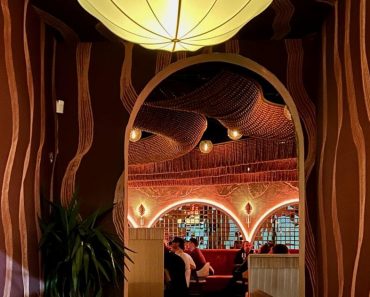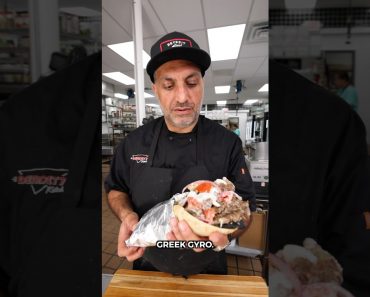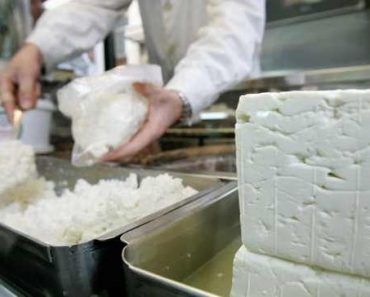Just an hour’s drive is all it takes to reach the region of Corinthia; close enough for a day trip, yet far enough for it to feel like a real getaway. What awaits there? Nature, sea, vineyards, olive groves, mountains, and food with character. From Isthmia and Kato Almyri to Vrachati and the mountain villages above Kiato, four remarkable restaurants offer the perfect excuse to hit the road. Each is run by passionate people who work with care and consistency, guided by a deep love of good taste and a respect for their craft. Together, they make Corinthia an irresistible destination for a nearby culinary adventure.


Eviva, Vrachati
In the quiet village of Vrachati, away from Corinthia’s tourist bustle, a humble grill house has redefined what Greek meat cookery can be. Eviva, owned by brothers Giorgos and Dimitris Mavronasios, opened in 2013, when they transformed one of the old village cafés into a modern grill restaurant with a fresh philosophy and a craftsman’s discipline.
Everything, from selecting the animals to butchering and deboning, passes through their own hands. Their approach is grounded in the principles of nose-to-tail respect, seasonality, traceability, and knowledge. They visit producers personally, getting to know the animals and how they’re raised. Specialized aging chambers allow them to experiment even with mutton – a rarity in Greece. The ewes and lambs are aged carefully to retain moisture and develop deep, complex flavors. The result is meat that’s tender, balanced, rich, and subtly sweet.
They seek out Greek breeds, such as Kalarrytiko sheep from Epirus and local breeds from Lesvos and Lemnos, as well as native lambs raised freely and fed naturally.
Among the highlights of the menu are handmade cured meats: mutton kavourmas, 100% beef sausage crafted from dry-aged cuts, and seasonal dolmades made with onion leaves in autumn, cabbage leaves in winter. The mini burgers, made entirely from dry-aged beef, are some of the most flavorful bites you’ll find – juicy, layered, and full of depth. From the cuts, expect T-bone, picanha, and sirloin from Spanish Black Angus, dry-aged for 60 days. On weekends, they also prepare slow-cooked dishes: lamb with wild greens (stamnagathi), braised beef in tomato sauce, and soutzoukakia.
What defines Eviva is the seriousness behind its simplicity, honest work, orderliness, and adherence to principle. Their passion extends to wine as well: the list, curated by sommelier and winemaker Petros Dimoulias from Nemea, features 160 labels from Greece and abroad, offering thoughtful pairings for every dish.
Perfect add-on to your visit: A visit to the archaeological site of Nemea and its surrounding wineries.

Osteria Greca [Socrates Baltagiannis]
Osteria Greca, Lalioti
Driving up the slopes above Kiato, just before the vineyards take over the landscape, the stone building of the Papargyriou Estate appears among orange groves and olive trees. It’s the kind of place that soothes you before you’ve even taken your seat. Within the winery itself, Osteria Greca has, in just three years, become a destination for travelers who seek not routine but discovery; those curious about what’s new and exciting in food.
Yiannis Papargyriou, a second-generation winemaker, creates wines with clarity, richness, and striking concentration. The restaurant’s wine list includes his own labels as well as selected Greek and international bottles. In the kitchen, chef Giorgos Antonellos, originally from Kefalonia, works with simplicity, precision, and a passion for local ingredients, grown in the surrounding area or the estate’s own garden.
The meal begins simply but memorably: a tomato from mountainous Corinthia – juicy, almost sweet – paired with prentza, a soft Kefalonian cheese. Then comes one of Osteria Greca’s signatures, fried lamb intestines (gardoubakia) fricassee with lettuce, chicory, and wild greens, crisp on the outside, tender within, and rich in flavor. The roasted cauliflower with almond and a whisper of smoke might be softer than expected, but its balance and harmony with the wine make it irresistible.
From the bucatini with wild boar meatballs to the slow-cooked beef cheeks with trahanas and the beautifully judged sofrito, every dish reflects craftsmanship and quiet confidence. Dessert brings a poached pear in Moschoudi wine sauce with white chocolate cream – sweet, but never heavy – a graceful close to the meal.
Each plate here shows consistency and character, perhaps a touch more refined than rustic, but always thoughtful and sincere. As the chef himself says, the menu is constantly evolving, and that alone is a sign of a living, healthy kitchen.
Perfect add-on to your visit: A wine-tasting visit at the Papargyriou Estate and a walk through the vineyards.


Kavos, Isthmia
I’ve visited Kavos many times – especially in summer, after a swim – but it’s equally inviting in autumn. Established in 1964, this restaurant occupies an old grain warehouse by the sea, now transformed into a bright, elegant taverna with wooden pergolas and tables set almost above the water. The view across the Gulf of Megara soothes both mind and heart, particularly as the sun begins to set.
The menu is simple and honest, guided by the daily catch from local fishermen. You won’t find elaborate sauces or heavy creams here. The greens are perfectly boiled – tender yet with a pleasant bite – and the vegetables are seasonal and fresh. Tasos Vlassis, owner and soul of the place, moves easily among the tables, gently suggesting the day’s best choices. “Come inside to see the fish,” he says, and that’s where decisions are made: among gleaming displays of shellfish, mollusks, and fish of all sizes, each carefully selected.
In the kitchen, his mother Mrs. Pagona cooks with the calm assurance of long experience. Her langoustine pasta with shellfish and linguine in a lemony sauce is a study in balance. Among the appetizers, the fried red mullet, steamed mussels, and shrimp saganaki stand out, each prepared exactly as it should be, without excess or pretension.
The kitchen at Kavos runs with quiet precision, more like a fine restaurant than a seaside taverna. Even when the tables fill and the pace slows, the service remains warm, unhurried, and genuine.
Perfect add-on to your visit: A walk around Isthmia to view the Corinth Canal from above or even cross it on one of the small local boats. You can also visit the Archaeological Museum of Isthmia.

Almyriki [Socrates Baltagiannis]
Almyriki, Kato Almiri
Almyriki is the kind of restaurant you don’t expect to find in Kato Almyri; a place of thought, technique, and quiet energy, set quite literally by the waves. In 2013, Kostas Babalikis, a chef with experience in both restaurants and hotels, left Athens to create something of his own in his partner’s hometown. His cooking moves gracefully between tradition and innovation, with seafood always at its heart.
The seafood comes from local fishermen, and the vegetables arrive from his father-in-law’s garden. Kostas personally selects the wines and keeps them in a small walk-in cellar, featuring handpicked Greek labels, dessert wines, and spirits.
He works exclusively with Greek products from small-scale producers, combining technical precision with warmth. Standout dishes include stamnagathi (wild greens) with grated tomato and xynotyri cheese from Syros – a simple, deeply flavorful combination – and a salad of hydroponic tomatoes with carob rusk, fresh onion, pickled rock samphire, and seaweed (galeni), refreshing and balanced. The taramosalata with chive oil and sun-dried tomato chips delivers exceptional depth of flavor.
The dish that lingers in memory is Lemnos trahanas with sautéed squid, Aegina pistachio cream, and lemon gel – bold, refined, and perfectly harmonious. The fish and shrimp yuvarlakia (dumplings) with cauliflower cream, bottarga, and saffron cauliflower flakes are equally thoughtful, both in concept and execution. The tsaousi fish we tried was grilled to perfection, revealing the subtle sweetness of this lesser-known species.
Fish here is also prepared bianco, giouvetsi-style, fricassee, or, in winter, as stifado (fish stew). Whatever the form, Babalikis’s cooking reflects a clear culinary vision: he controls his ingredients, experiments with care, and serves food with personality, precision, and authenticity.
Perfect add-on to your visit: A visit to Markellos Olive Mill for a tour and olive oil tasting.
This article was originally published in Greek at gastronomos.gr and in English in Greece Is (www.greece-is.com), a Kathimerini publishing initiative.







